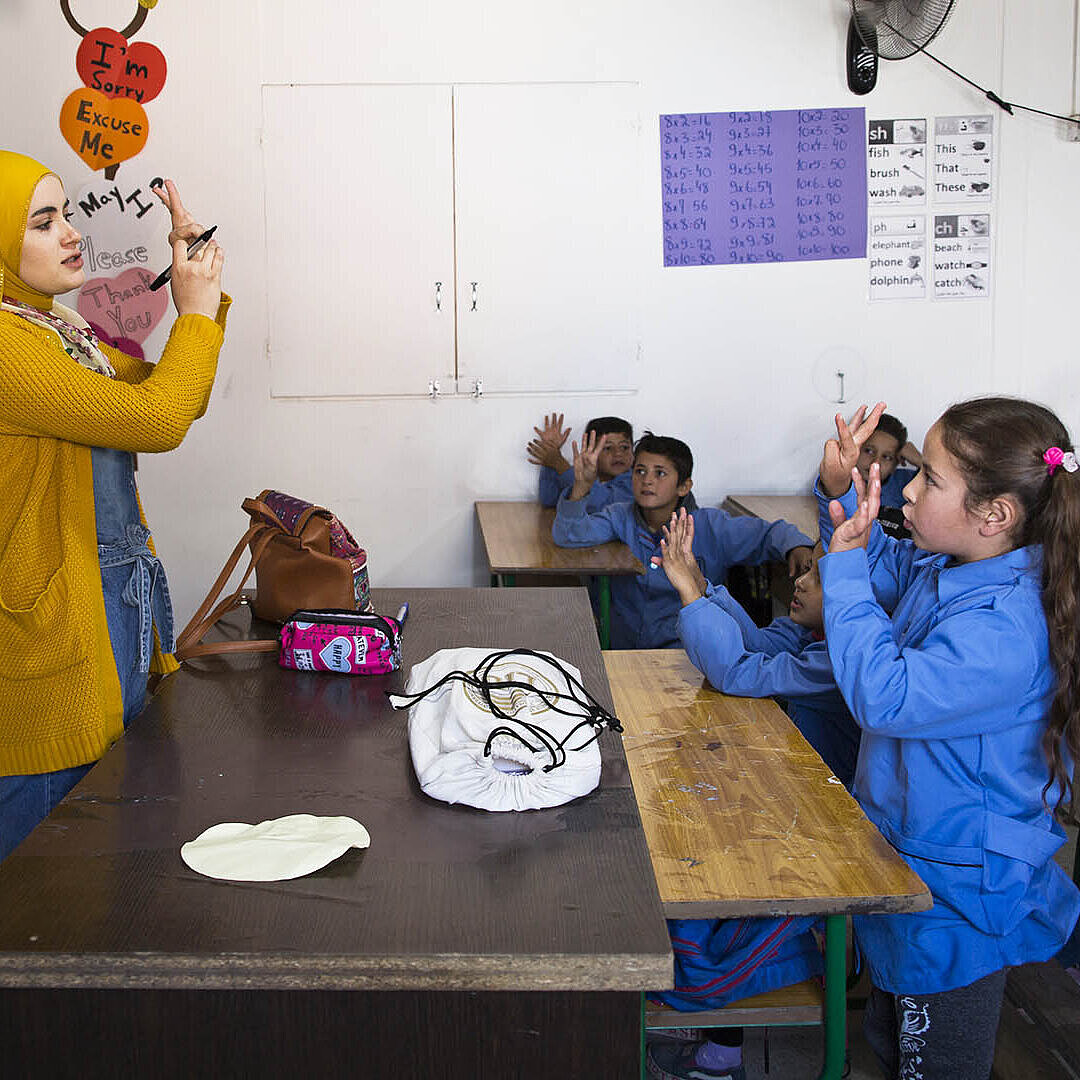Our projects benefit children
We are bound by our Articles of Association to work for children in need. In line with the UN Convention on the Rights of the Child, we define children as all minors below the age of 18. We know that strong parents and guardians make for strong children, which is why many of our projects address parents and educators.
The following groups of persons are eligible as project beneficiaries:
- Minors under the age of 18
- Young people (as a rule teenagers) undergoing vocational training
- Breastfeeding or pregnant women
- Mothers, fathers, and other guardians as well as educators of minors
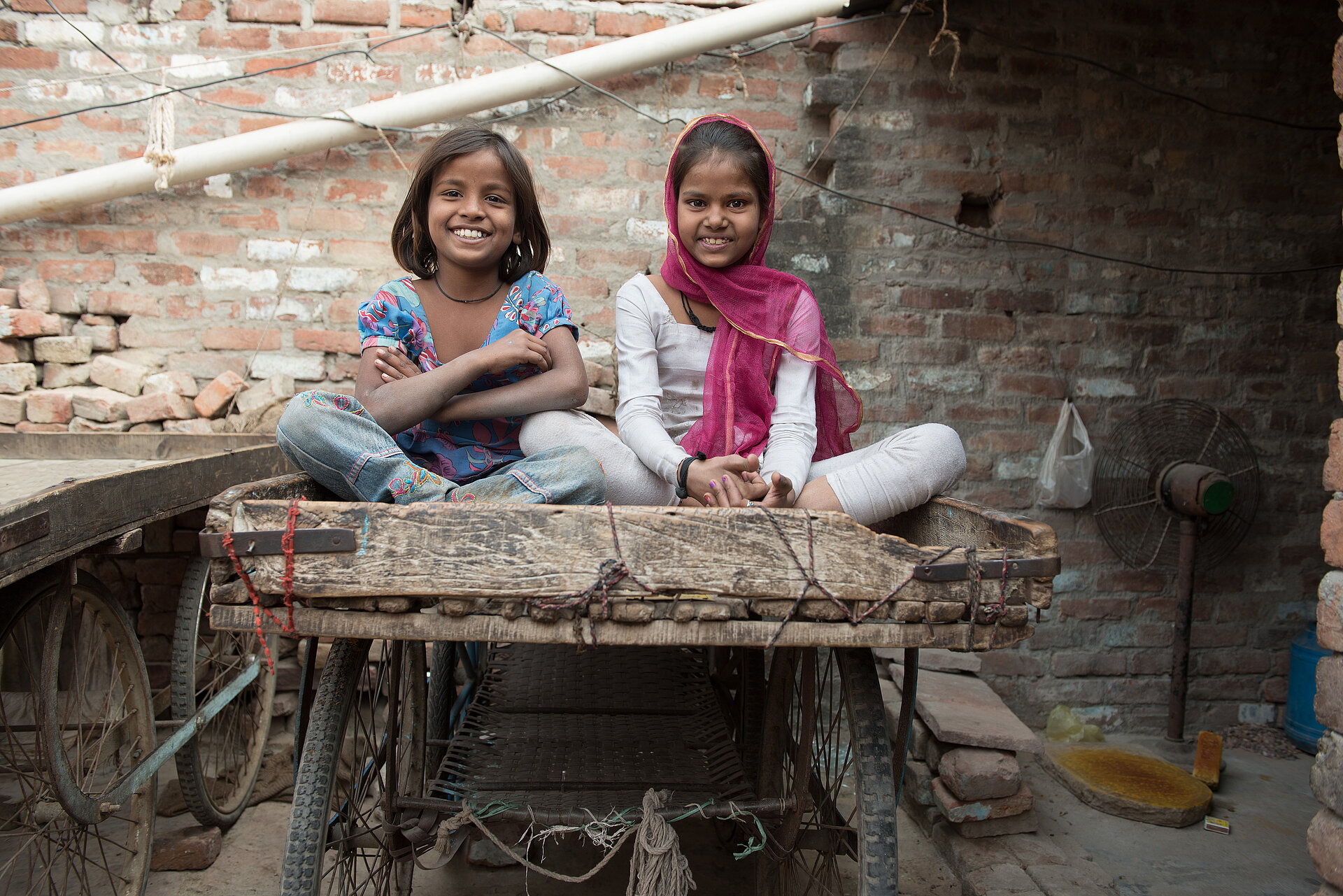
Disadvantaged children
Our work focuses on disadvantaged children, in particular street children, working children, children with disabilities, ethnic minorities, refugees and children of war zones, abused children, children affected by HIV/AIDS, and victims of natural disasters. We fund children’s projects irrespective of the beneficiaries’ gender, religion, ethnic or cultural background.
Wherever possible, our work is directed at the poorest of the poor. This preferential option for the poor also includes children and young people who are not necessarily poor in the material sense, but who have been socially and emotionally neglected.
Our approach to project work
Our main areas of work are education, nutrition, health, social integration and pastoral care. We also provide disaster relief and emergency aid for children affected by war, displacement and other disasters. Within these areas of work, the following overarching concerns should be taken into account for all projects:
- children’s rights
- inclusion of children with disabilities
- gender equality and respect for diversity
- holistic care that addresses the physical, emotional and spiritual needs of children
- sustainable development
- ecological sustainability
Below follows a list of funding areas within the fields of education, social integration, nutrition, health and pastoral care. Not all funding areas are prioritized in every country. Besides the quality of the project, we also consider its level of priority when compared with other applications and as seen against our limited funding overall.
Funding Areas
- Pre-school programmes such as child care centres and kindergartens
- Formal education
- Education for girls, e.g. back-to-school programmes
- Education for children with disabilities
- Informal education such as literacy programmes, courses for educational reintegration, vocational training, awareness-building programmes etc.
- Setting up and developing educational institutions
- programmes to enhance local education systems
- Training of Trainers, e.g. teacher training, training in early childhood education etc.
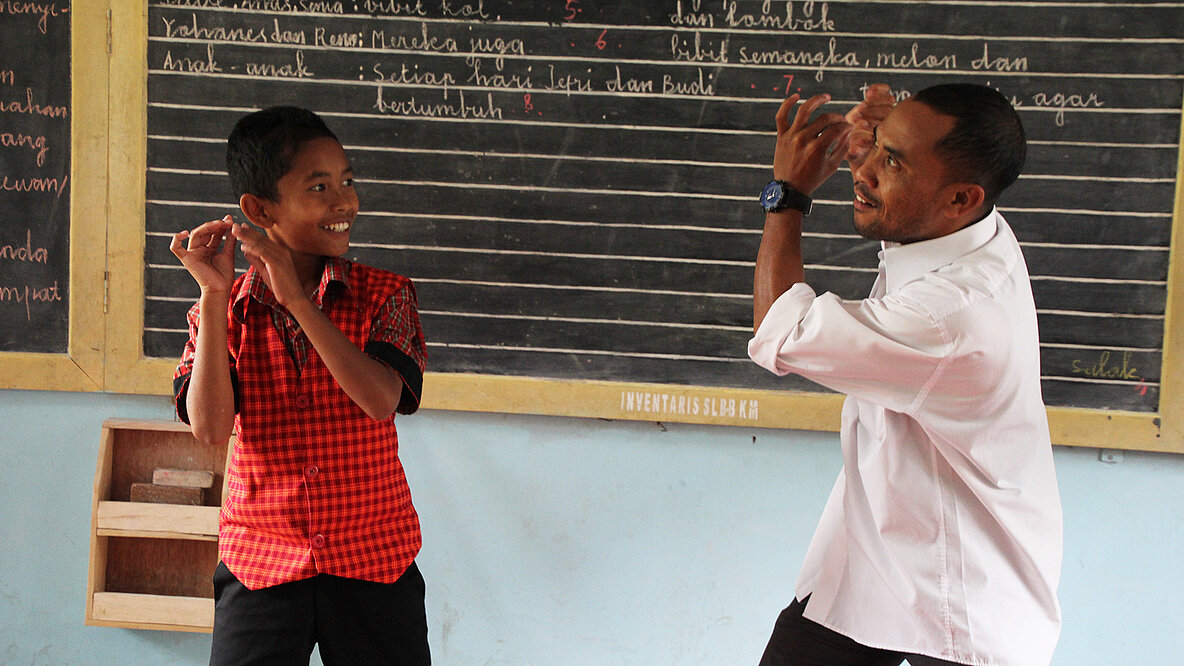 © Susanne Dietmann / Kindermissionswerk
© Susanne Dietmann / Kindermissionswerk- Programmes against malnutrition
- Setting up and developing nutrition centres
- Training and awareness-building programmes to popularize breastfeeding and balanced diets for infants and children
- Training of Trainers on nutrition-related issues
- Working for access to land and food
- Working for the right to suitable nutrition, supporting small farmers and food security, access to relevant state programmes, etc.
- school gardens, food security programmes etc.
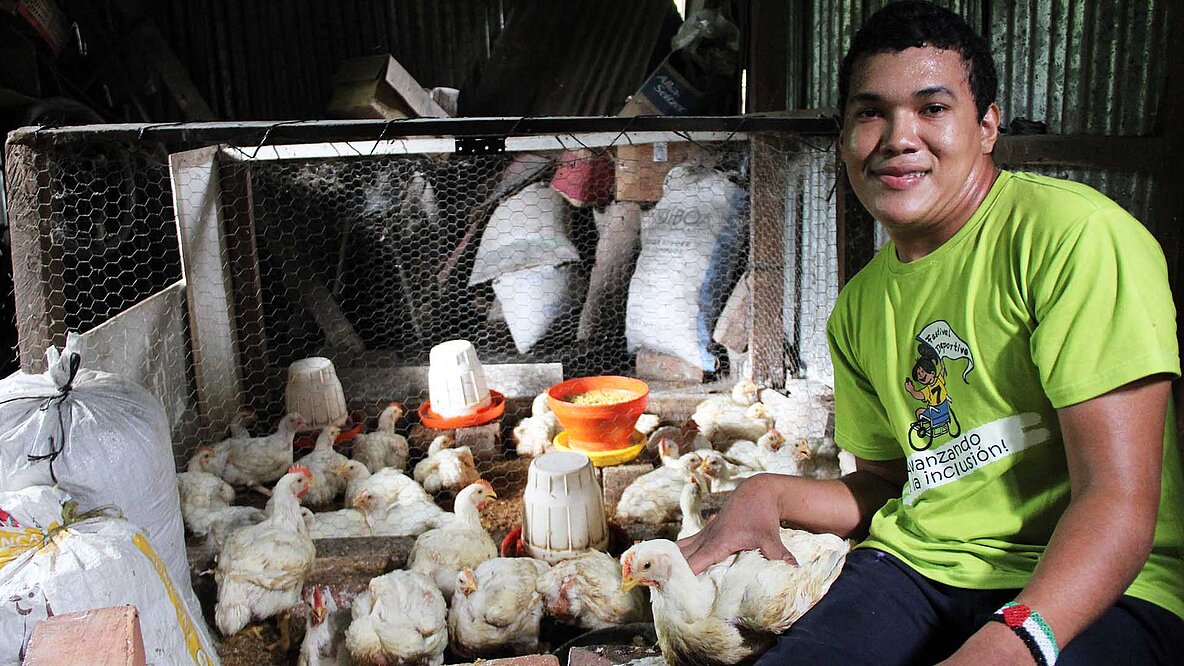 © Dietmann / Kindermissionswerk
© Dietmann / Kindermissionswerk- Education and awareness-building on hygiene, female genital mutilation, the right to healthcare, etc.
- Prevention and healthcare programmes, e.g. basic healthcare, mother-and-child healthcare, dialogue between traditional medicine and mainstream medicine, healthcare for urban dwellers, health camps, etc.
- Training of Trainers
- Programmes to develop community-based family healthcare, neighbourhood networks, midwives/traditional birth helpers etc.
- Access to water/drinking water, hygiene/sanitary installations and other infrastructural measures
- Programmes for enhancing existing healthcare systems
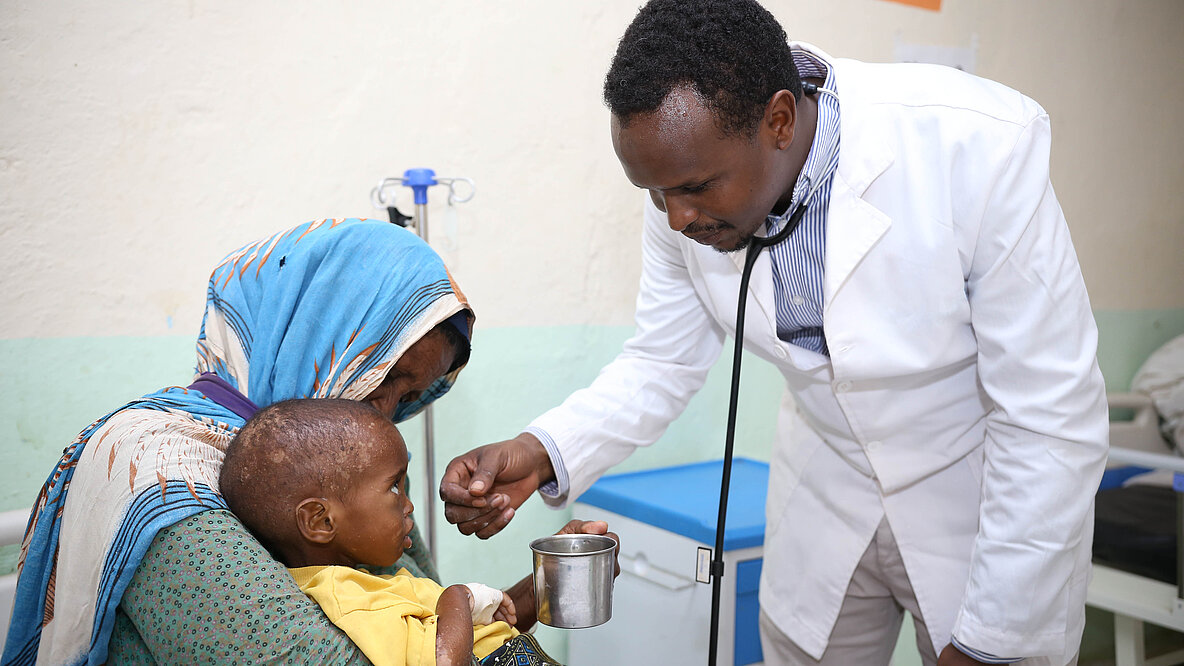 © Trocaire/Kindermissionswerk
© Trocaire/Kindermissionswerk- Faith-based education and awareness-building, catechesis programmes and materials, children’s Bibles, youth Bibles, materials and programmes for spiritual and personal formation, etc.
- Training of Trainers
- Infrastructural measures
- Interreligious dialogue
- Meetings and community activities, ecumenical activities etc.
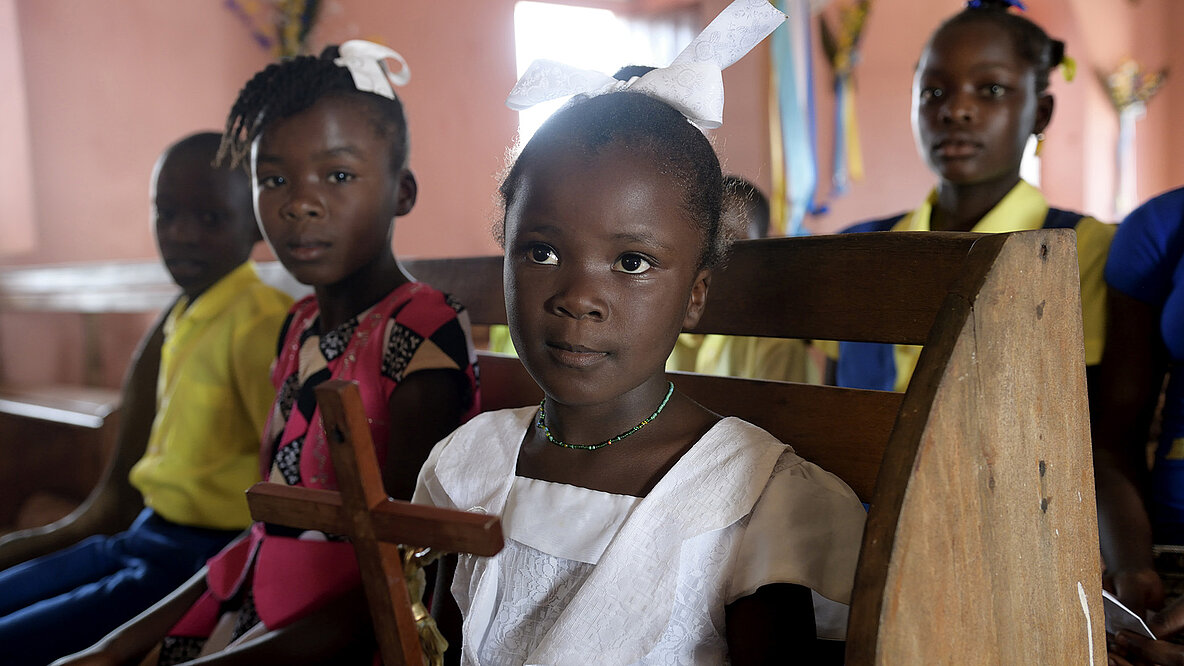 © Florian Kopp / Kindermissionswerk
© Florian Kopp / Kindermissionswerk- Education and awareness-building, e.g. with and on behalf of marginalized groups
- Programmes in the field of social integration
- Developing alternatives to institutional care
- Programmes for the social inclusion of children with disabilities
- Trauma counselling and other psycho-social support, peace-building and conflict resolution, community-based rehabilitation, rehabilitation of street children, child soldiers, institutionalised children, victims of abuse and violence, children affected by HIV/AIDS, etc.
- Training of Trainers
- Village committees for children’s rights and the protection of minors
- Infrastructural measures
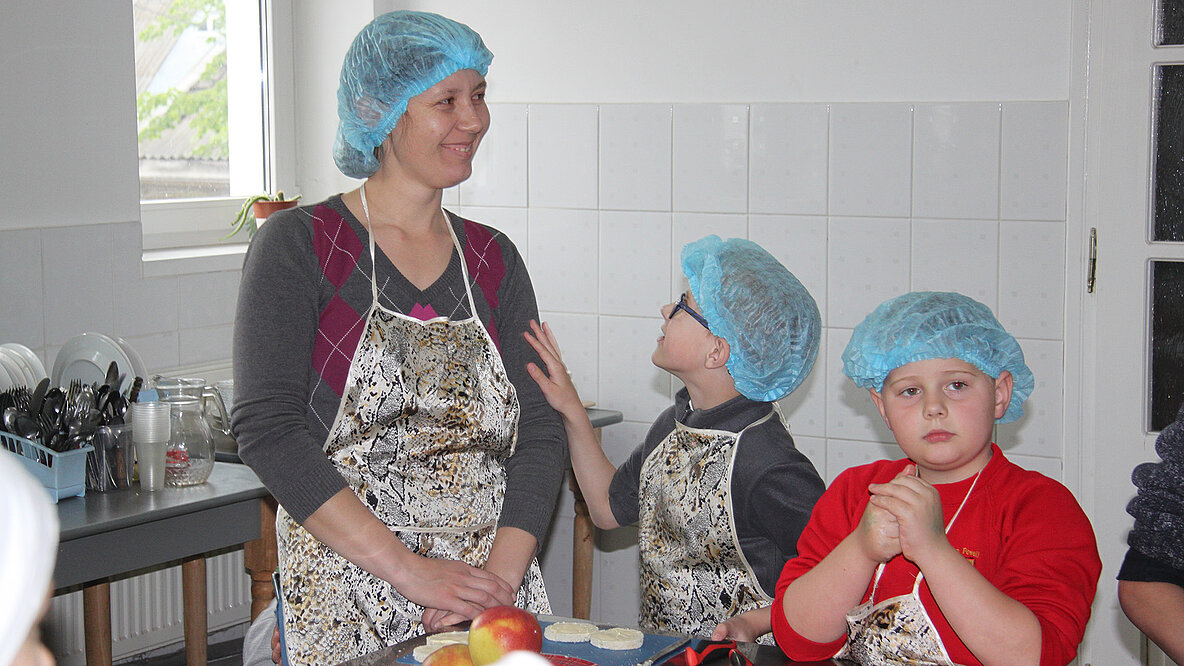 © Projektpartner / Kindermissionswerk
© Projektpartner / Kindermissionswerk- Providing food, water, shelter and access to health care for children affected by war, displacement and disasters
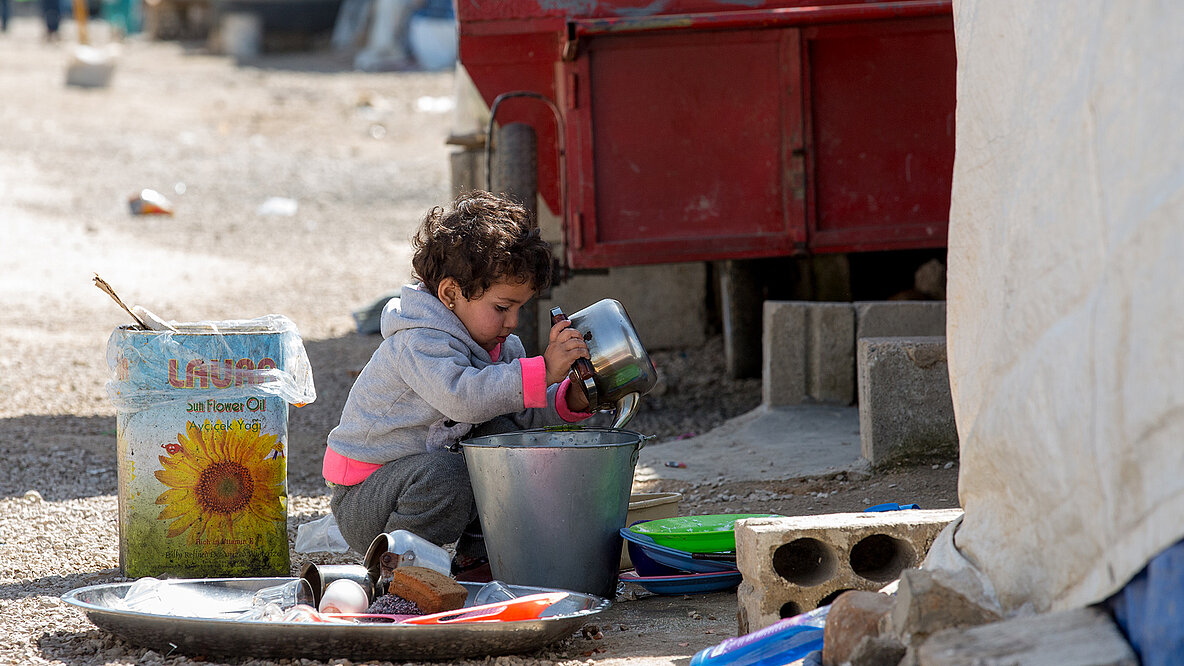 © Bettina Flitner / Kindermissionswerk
© Bettina Flitner / Kindermissionswerk
